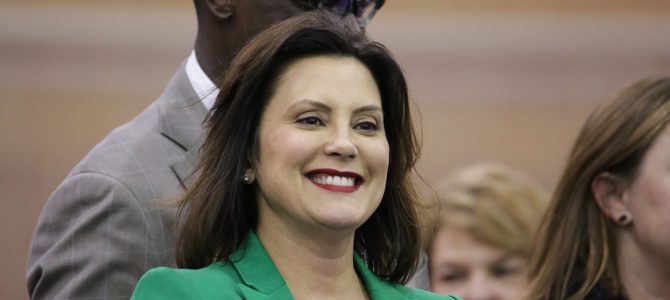
To limit the spread of the Wuhan virus, many governors and mayors have taken extraordinary action to enforce social distancing and cover people’s mouths everywhere.
Americans are facing heavy fines or even jail time for attending church, taking leisurely drives, visiting their friends, playing at the park, or simply leaving their houses without a mask. In many places, police have been relieved from punishing actual crimes (like theft, selling narcotics, and vandalism) so they can accost and investigate otherwise innocent people driving their cars, riding the bus, or taking a walk.
This is an obvious abuse of power that only reinforces the need to abide by constitutional limits. These political leaders are violating people’s rights, often arbitrarily and on flimsy pretexts, and setting a terrible precedent for future leaders to do the same or worse. If a mayor or governor can unilaterally suspend certain laws and create others for the sake of a cataclysmic health crisis that has yet to materialize, what would stop them from doing the same with any other claimed environmental, economic, or political crisis?
Many misunderstand what motivates people to turn into “little tyrants” like Michigan Gov. Whitmer or Louisville Mayor Greg Fischer. They will assume that such people succumbed to the temptation of power and, like the possessor of the One Ring, became helplessly corrupted by this power.
Feeling the thrill of banning the sale of vegetable seeds and drive-in church services, they cannot help but bully and harass their citizens. After all, the only people who will call them out are Constitution-thumping conservatives who lack credibility, not anyone in the leftist corporate press.
While this power-tripping without accountability certainly plays a role in local and state politicians upending people’s freedoms, it is more likely that they are doing as they think good leaders do. Even if the Constitution explicitly condemns their actions, the culture idolizes the politician who flouts old laws. In their minds, they aren’t dictators taking advantage of collective panic; they are visionaries who understand what is necessary to save lives.
They have good reason to think this way. Historians and Hollywood producers tend to evaluate leaders more on their image than their legacy. David Harsanyi notes that when ranking American presidents, too many historians “offer hagiographic treatments of the near-autocrats and busybodies” and write off those presidents who make the tough decision “not to use their power.”
Because of the restraint of presidents like Warren Harding and Calvin Coolidge, historians often rank both among the most mediocre. By contrast, Woodrow Wilson and Franklin D. Roosevelt, men who, among other things, restricted rights, bungled foreign relations, and enacted terrible economic policies, enjoy high rankings, all because of their activeness and perceived cleverness.
In light of this prevailing attitude, it makes sense that political leaders around the country want to do everything possible and impossible to fight the Wuhan virus. It is not necessarily an exercise in ambition, but vanity: they absolutely must look like a leader at all costs. And those costs are already amounting to thousands of lives, millions of jobs, and trillions of dollars. Added to this is the ongoing trampling of Americans’ rights.
Although he lived more than two millennia ago, Aesop tells a fable that illustrates our situation and offers a possible solution. In the fable, a group of frogs are ruled by King Log, a wooden log sitting in the middle of their pond. Frustrated with King Log’s inaction and lack of eloquence, the frogs pray to Zeus for another king who will do more.
Zeus answers their prayers by sending a crane to the pond. The frogs rejoice at the sight of the crane swooping down upon their pond, but immediately jump away in terror when the crane begins to eat them.
Americans should resist the fate of the frogs and reverse their preference of the despot over the do-nothing. Whether or not the virus proves as destructive as the doomsday models predict, it ultimately depends on individual citizens and private organizations to act responsibly. Great leaders understand this, and do all they can to leave their citizens free to make their own decisions and place as few restrictions as possible.
Great citizens embrace this freedom and act for the greater good of society and themselves. More than any shutdown or new stimulus bill, this will be the only real way to defeat the Wuhan virus and preserve Americans from the even greater scourge of tyranny.









